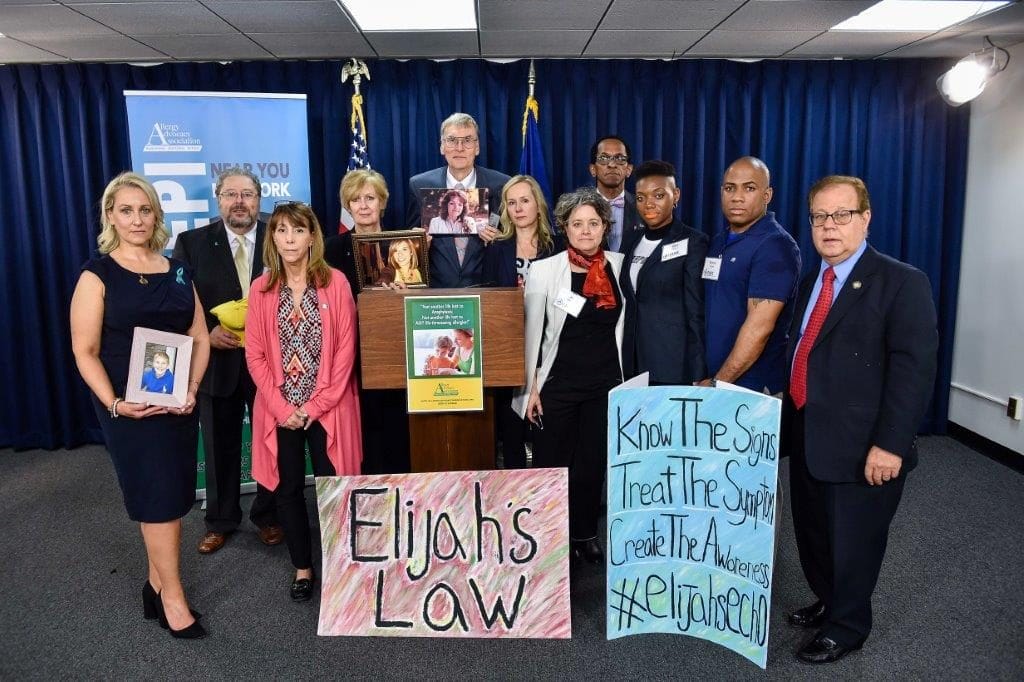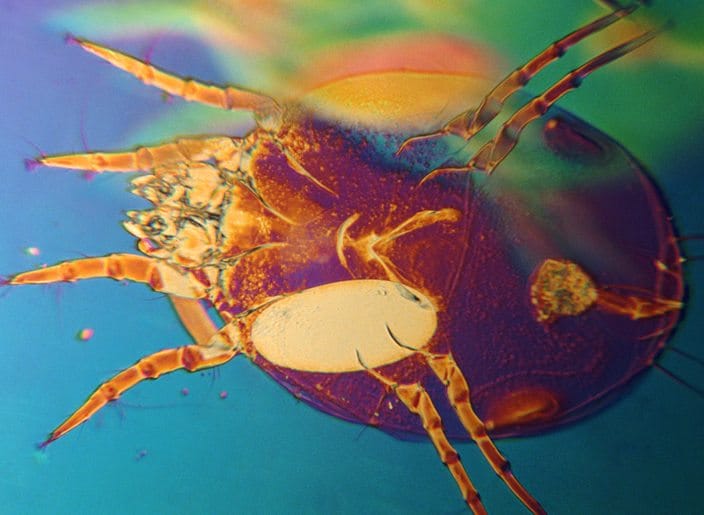 Left to right: Parent Georgina Cornago Cipriano, parent Frank Frangella, Assemblywoman Melissa Miller, parent Cathee Frangella, Jon Terry of the Allergy Advocacy Association, Dr. Kirsi Jarvinen-Seppo of the University of Rochester, Jennifer Jobrack of FARE, Assemblyman Al Taylor, parents Dina and Thomas Silvera & Assemblyman Thomas Abinanti.
Left to right: Parent Georgina Cornago Cipriano, parent Frank Frangella, Assemblywoman Melissa Miller, parent Cathee Frangella, Jon Terry of the Allergy Advocacy Association, Dr. Kirsi Jarvinen-Seppo of the University of Rochester, Jennifer Jobrack of FARE, Assemblyman Al Taylor, parents Dina and Thomas Silvera & Assemblyman Thomas Abinanti.
Advocates, including parents who have lost children to anaphylaxis, were in Albany, NY on May 16, 2018 to raise support to several food allergy related bills that are proposed for the New York Assembly and Senate in relation to food allergies.
The non-profit Food Allergy Research and Education (FARE) and the New York State group the Allergy Advocacy Association organized the day.
The following is adapted from FARE’s press release:
The advocates joining FARE included children with food allergies, their parents, as well as siblings and grandparents, and adults with food allergies. FARE is working with the Allergy Advocacy Association, a Rochester-based group, on this effort.
The legislative measures for which FARE seeks support include:
- “Elijah’s Law” (A6971/S218-B), named in memory of Elijah Silvera, a 3-year-old boy who died in November 2017 at a New York City daycare due to exposure to milk, to which he was allergic. The bill would establish a daycare allergy and anaphylaxis policy for all daycare centers, including a procedure and treatment plan. Elijah’s parents, Thomas and Dina Silvera, were with FARE in Albany.
- “Gio’s Law” (A3426/S484), named in memory of Giovanni Cipriano, who passed away in 2013 at the age of 14 due to accidental exposure to peanuts. The bill would establish a requirement for first responders to be trained on how to use epinephrine auto-injectors, retrain every two years, and report utilization of anaphylaxis treatment.
- Restaurant safety legislation A329 and A537/S6425, which requires food allergy training and food allergen notification posters in restaurants, respectively.
- A7219/S289: This bill would address the situation where a patient is prescribed a brand name epinephrine auto-injector (EAI), a pharmacist may substitute an alternate epinephrine auto-injector containing the same active ingredients, dosage form and strength as the brand name product prescribed.
Allergic Living will be following the progress of these bills.





